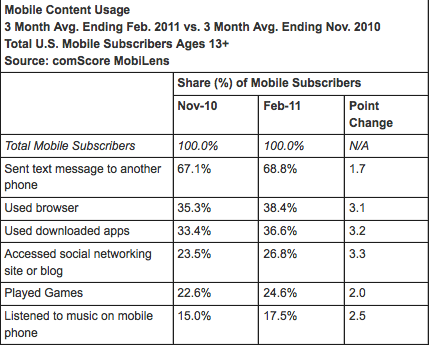
Creative Commons- Creative Cupcakes.com
The ever increasing trend of mobile being used in health care is creating greater access of information, anywhere and at any time, not only to you and me, but to health care professionals. Telemedicine, the ability to remotely monitor patients via Internet connection, is rapidly adopting smart phone or mobile apps. It’s a growing trend with 10,000 mobile health care apps allowing users to access electronic health records (EHR) according to Mobile Marketing Watch. Not only does this allow doctors to monitor chronic diseases, which is the number one leading cost of expensive hospital bills, but it gives the opportunity for loved ones to also monitor granny’s diabetes or heart murmur at the convenience of her home.
As Kathleen Sebelius, Secretary of Health and Human Services and our current administration further push the use and adoption of online EMR we will see greater trust in the mobile technology and faster adoption rates (if HIPAA regulations are proving effective, protecting citizen’s rights to health care privacy). According to ComScore report, approximately 70 million people in the U.S. owned smartphones during a 3 month period (end November 2010 – Feb 2011) with folks accessing social networking sites (Facebook or MySpace) increased 3.3 % and mobile gamers increased 2% during that time period.

comScore Reports February 2011 U.S. Mobile Subscriber Market Share
With greater adoption rates of telemedicine and access of care, we will also see more consumer products with the ability for patients to record comments and share health data with friends. Sharing is big! In the consumer world video gaming is a huge industry with nearly three quarters of U.S. households playing some form of video game where scores are shared and motivation and pride is key to long term behavioral changes. Gamification of fitness and health to modify chronic diseases will be pervasive tools in disseminating important health information, presented in a fun, interactive way. Can you image a mobile app that can display, record and transmit your health data AND be shared with your social networks? (Hint: These tools already exists!)
This weekend I spend my time at PAX, Seattle’s yearly gaming conference featuring consoles, PC and table games. It’s a massive conference, nothing like the dental conventions that I’ve been accustomed to attending; It’s a lot more fun (and you get better swag than toothbrushes!). The gaming industry is growing leaps and bounds, in fact, three quarters of all U.S. families play games and 72% of those play computer or video games according to the Entertainment Software Association (ESA).
“Entertainment software is now one of the fastest growing industries in the U.S. economy. And video games are driving technological and societal advancements that serve gamers and non-gamers alike. From education, to health, to business, the computer and video game industry is helping Americans lead healthier, happier and more productive lives.”
Games can be used for the following:
- Physical fitness
- Rehabilitation
- Behavioral changes
- Medical training
The next post will feature a few examples of the telehealth products which are great at monitoring behavior changes to improve health via games.







